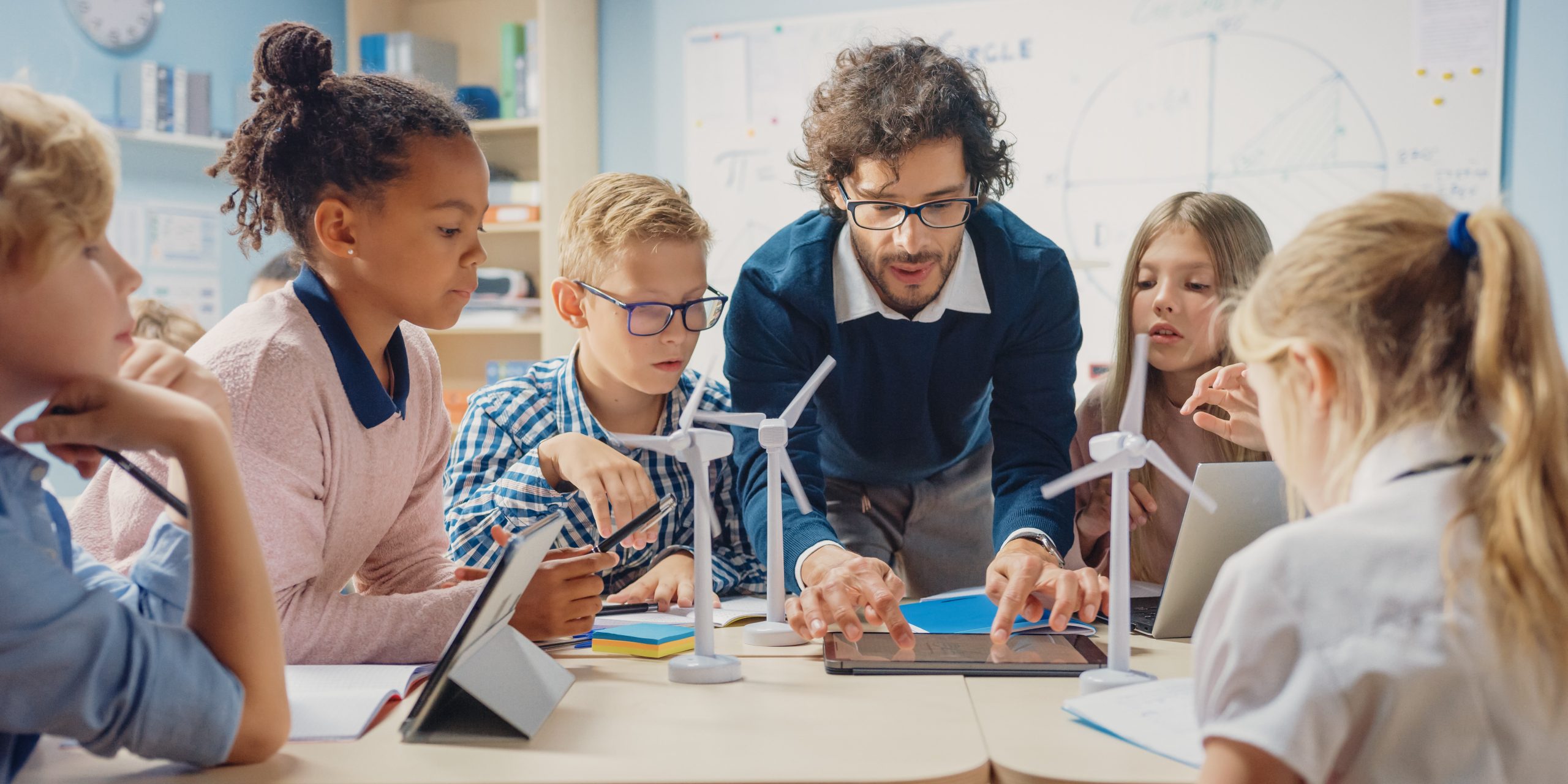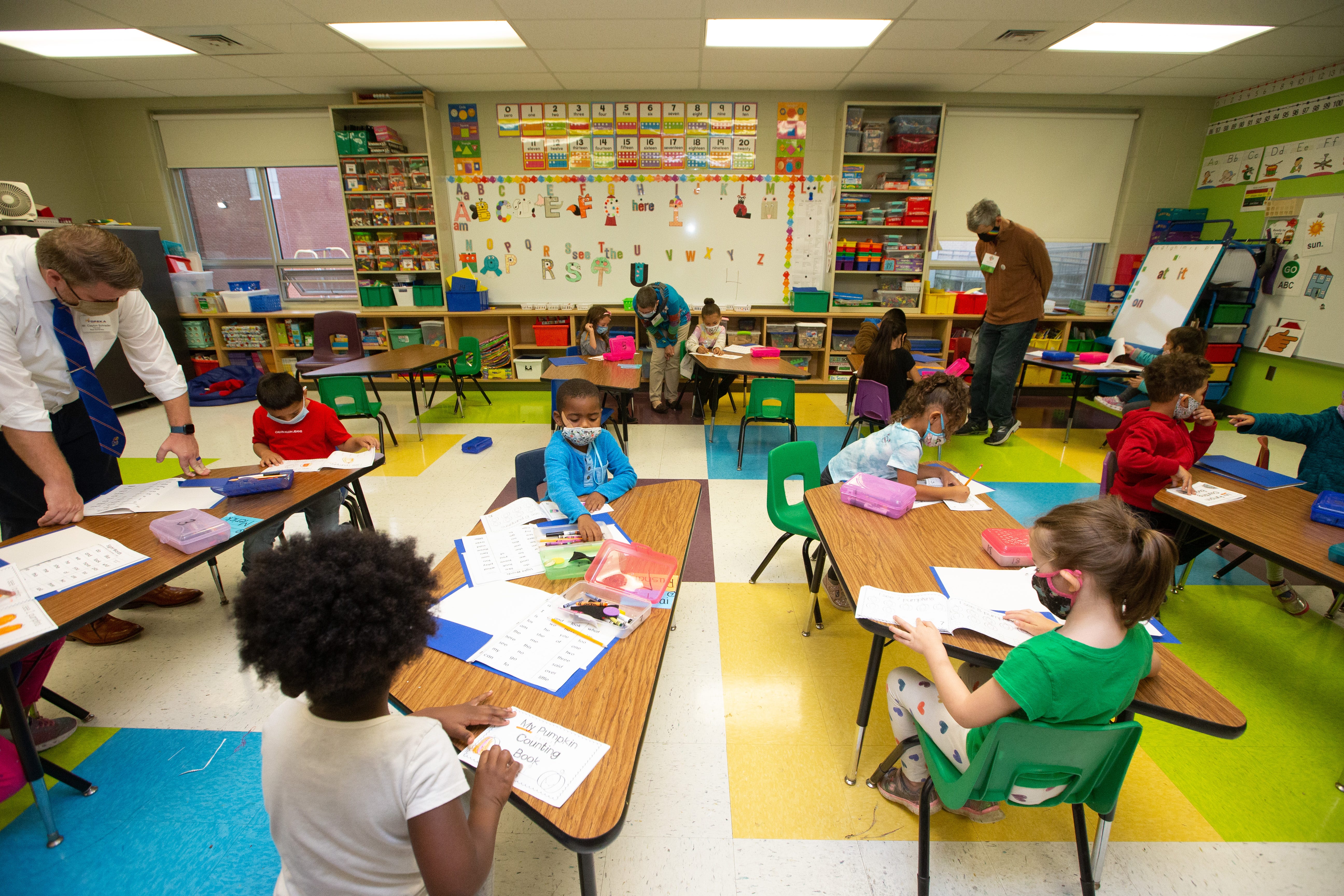Expert Tutors Offering Primary Science Tuition Singapore for All Grades
Expert Tutors Offering Primary Science Tuition Singapore for All Grades
Blog Article
Discover the Essential Benefits of Recognizing Main Science for Young Learners
The importance of main scientific research education for young students prolongs far past mere expertise procurement; it serves as a basic column in developing essential abilities such as crucial thinking, analytical, and imagination. Involving with scientific concepts through interactive and inquiry-based activities not just grows interest yet likewise lays the foundation for durable, certain students.
Enhancing Important Thinking Skills
Fostering crucial assuming abilities in young students is important for their cognitive development and future academic success. Vital thinking enables kids to evaluate info, evaluate evidence, and make educated choices, which are essential skills in today's information-rich culture. By participating in scientific query, young learners can enhance these skills as they discover principles through monitoring, thinking, and experimentation.
In main scientific research education and learning, instructors can promote crucial thinking by urging pupils to ask concerns, create theories, and conduct experiments. This hands-on technique permits kids to practice problem-solving and create sensible thinking abilities. When students explore the homes of products or the principles of movement, they discover to evaluate their searchings for seriously and draw verdicts based on proof.
Additionally, discussions and joint projects can promote important thinking by providing chances for learners to express their thoughts, obstacle assumptions, and consider varied perspectives. By creating an encouraging setting that values questions and reflection, educators can support essential believing skills that equip young students to end up being independent thinkers and lifelong learners. Eventually, enhancing these abilities lays a robust structure for their future academic ventures and individual growth.
Cultivating Inquisitiveness and Exploration

Key scientific research education and learning supplies an organized atmosphere where young learners can check out numerous sensations with hands-on experiments and observations. By permitting them to interact with products and take part in inquiry-based discovering, educators produce opportunities for children to formulate theories, evaluate their concepts, and reason. Such experiences nurture a feeling of wonder and exhilaration regarding science.

Structure Self-confidence in Issue Resolving
Building confidence in analytic is a vital component of primary science education that encourages young students to come close to obstacles with strength and creative thinking - primary science tuition Singapore. They develop important skills in important thinking and evaluation when youngsters are motivated to involve with clinical principles through hands-on tasks and inquiry-based discovering. This process not just improves their understanding of scientific principles but also promotes a sense of ownership over their learning
To construct confidence, educators need to develop an encouraging atmosphere where errors are checked out as opportunities for growth instead of failures. This encourages trainees to take risks and explore numerous solutions to issues. By offering scaffolding and assistance, instructors can aid trainees navigate complicated tasks, slowly boosting their freedom in analytic situations.
Additionally, joint knowing experiences, such as team jobs or experiments, can additionally boost students' self-confidence as they learn to verbalize their ideas and listen to others' perspectives. These interactions support social abilities and enhance the idea that problem-solving is typically a collective undertaking. Eventually, cultivating self-confidence in analytical prepares young students for future academic challenges and furnishes them with the devices essential for lifelong knowing.
Motivating Creative Thinking and Technology
In the world of main science education and learning, encouraging imagination and technology is vital for cultivating a vibrant knowing atmosphere. By fostering a society where young students can check out ideas and experiment openly, educators aid students create essential believing skills and recommended you read an enthusiasm for exploration. Creativity in science encourages youngsters to ask questions, devise hypotheses, and engage in their explanation hands-on activities that promote their creative imagination.
Integrating flexible projects and inquiry-based knowing into the educational program enables pupils to reveal their one-of-a-kind viewpoints and services. For example, when charged with resolving a trouble pertaining to their setting, trainees can brainstorm numerous methods, causing inventive end results that display their creativity. This not only grows their understanding of scientific concepts but additionally imparts a feeling of ownership over their learning procedure.
Furthermore, innovative science education and learning nurtures collaboration among peers, as trainees commonly share concepts and improve one an additional's understandings - primary science tuition Singapore. This joint spirit advertises not just development but likewise necessary social abilities. Therefore, by prioritizing creative thinking and advancement in key science education, we encourage young learners to think critically, embrace difficulties, and envision opportunities, laying a solid structure for lifelong knowing and expedition
Getting Ready For Future Discovering Difficulties
Young students' ability to browse future learning obstacles rests on a strong foundation in main science education and learning. This fundamental understanding equips students with essential thinking skills and a methodical approach to analytical, vital for tackling intricate problems in an ever-evolving globe. Main scientific research cultivates inquiry-based understanding, encouraging students to ask inquiries, check out hypotheses, and take part in hands-on experiments.
As they create these skills, learners become proficient at assessing information, recognizing patterns, and drawing informed final thoughts. Such proficiencies are crucial not only in clinical fields but likewise in design, technology, and math (STEM), where interdisciplinary expertise is increasingly vital.
Additionally, primary scientific research education cultivates a sense of inquisitiveness and durability in young learners, enabling them to check out difficulties as opportunities for development. As they experience and overcome barriers in their clinical expeditions, they construct confidence in their capacity to introduce and adapt.
Eventually, a strong foundation in key scientific research not only this content prepares young students for scholastic pursuits but likewise furnishes them with the devices essential for long-lasting knowing and flexibility in a rapidly altering worldwide landscape. By buying key science education and learning, we are purchasing the future potential of our learners.
Final Thought
Understanding key science is crucial for young students, as it promotes critical reasoning, curiosity, and imagination. Inevitably, the advantages of main scientific research education prepare children for future academic quests and impart long-lasting learning practices necessary for growing in an ever-evolving globe.
The value of key scientific research education and learning for young students expands far beyond simple expertise purchase; it serves as an essential column in developing vital abilities such as important thinking, analytic, and imagination. By creating an encouraging environment that values inquiry and reflection, teachers can support vital thinking skills that empower young students to come to be lifelong students and independent thinkers. Thus, by focusing on imagination and advancement in primary science education and learning, we encourage young learners to assume seriously, welcome challenges, and imagine possibilities, laying a solid structure for long-lasting learning and exploration.
Young learners' ability to navigate future discovering challenges hinges on a solid structure in key scientific research education and learning.Recognizing key scientific research is essential for young students, as it promotes essential thinking, inquisitiveness, and creative thinking.
Report this page